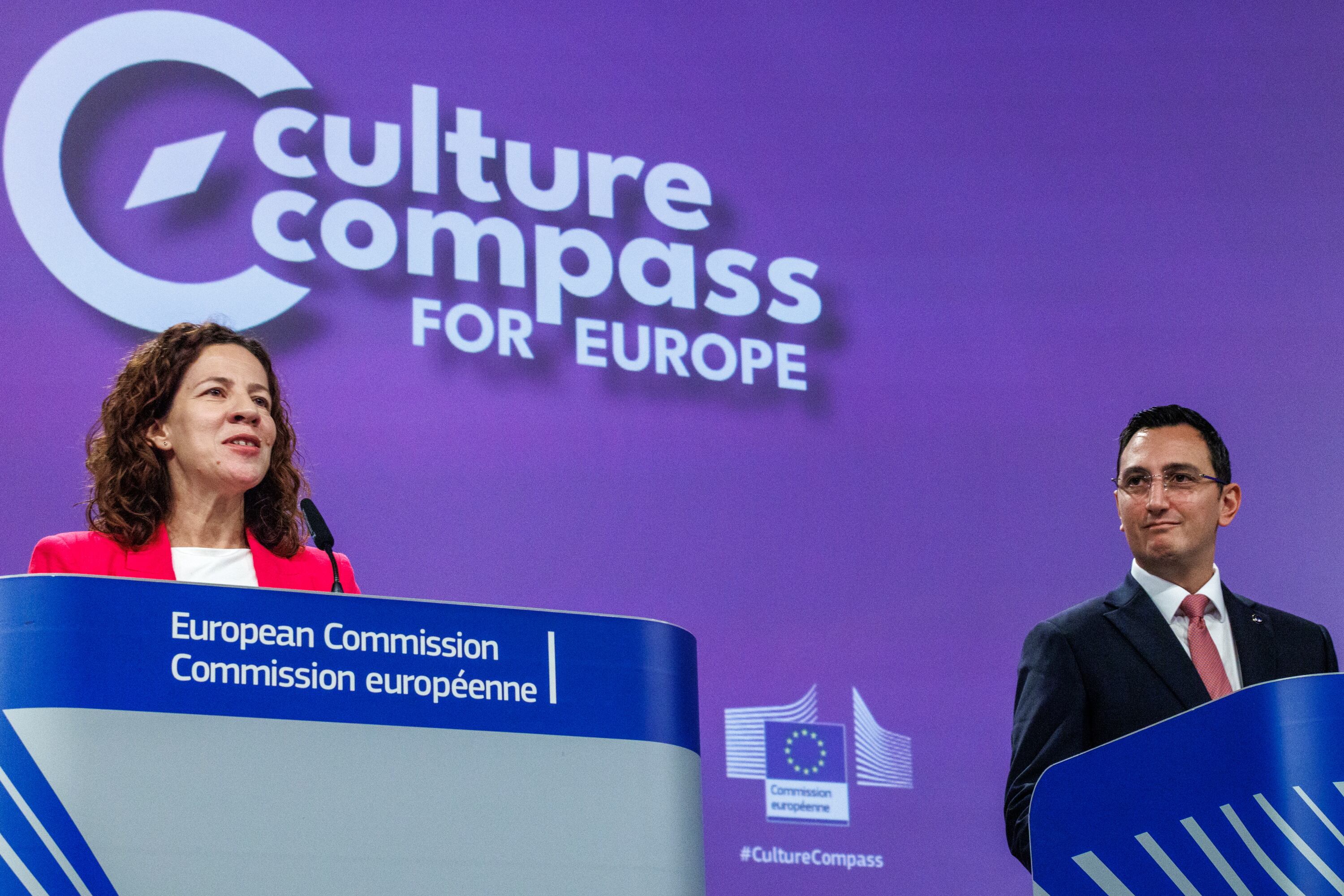Culture is one of the best ways to promote cohesion in an increasingly fragmented and polarized Europe. But its main driving force, the artists, need, as demonstrated in the extreme example of the stoppage during the covid pandemic, guarantees to be able to carry out their work in decent conditions and that their greatest asset, artistic freedom, is also respected. To this end, the European Commission proposed this Wednesday the creation of an EU “artists’ charter” that guarantees “fair working conditions for artists and cultural workers,” within the framework of a series of measures that also seek to “guarantee artistic freedom.”
“In times of uncertainty and change, culture reinforces our democracy, social cohesion, competitiveness and resilience,” underlines the Commission in the presentation of the Cultural Compass for Europe, a kind of “practical and pragmatic” roadmap to guarantee, in the long term, a “vibrant and integrated European cultural landscape” throughout the EU.
But ensuring that culture “maintains and reinforces” “European values and cultural rights”, as Brussels proposes, simultaneously requires that artists be able to create knowing that they can make a living from their work and without restrictions, neither material nor ideological.
“Culture is work and workers deserve dignity, because applause does not pay the rent,” recalled the Commissioner for Intergenerational Equity, Youth, Culture and Sport, Glenn Micallef.
For this reason, within the framework of the Compass, which for the moment is nothing more than a plan to be developed with more concrete proposals in the future, the creation of an EU Artists’ Charter is proposed that “establishes the fundamental principles, guidelines and commitments for fair working conditions in the sector.” The idea, Micallef has advanced, is to put black on white “concrete commitments on fair working conditions (…) and emphasize the need for better protection, better Social Security coverage and safer working conditions for artists and creative professionals who make enormous contributions to our economies, but above all to our societies.”
Beginning of collaborations for the document
The document, which will be developed in collaboration with high-level discussions with stakeholders and social partners to ensure that the Charter “reflects the needs of the cultural and creative community”, will also seek to “strengthen compliance and accountability, especially among beneficiaries of EU cultural funding”, advances the Commission.
In addition to bread, Brussels also wants to ensure artists’ air, that is, their creative freedom. “Artists must create without fear of interference,” emphasized the vice president of the Commission for Social Rights and Capabilities, Quality Jobs and Preparation, Roxana Minzatu.
To this end, the “compass” foresees several initiatives, including the signing of a joint declaration by the European Commission, Parliament and Council, the draft of which states that “freedom of artistic expression and freedom of creation are the foundations of culture and play an indispensable role in promoting democratic societies and defending European values.” For this reason, it continues, the commitment of the three European institutions is expressed to “safeguard freedom of artistic expression and respect for EU values as a pillar of democracy and fundamental rights in the EU”, as well as to “protect artists and cultural professionals from censorship, intimidation and undue interference”, in addition to “protecting the independence of cultural institutions”.
In a Commission that has not missed the opportunity lately to highlight the economic and competitiveness importance of each step it takes, Minzatu has also recalled the economic weight of the culture sector in the EU: almost 8 million European citizens work in culture, a sector that generates 20 billion euros of added value each year, boosting not only large cities, but also rural areas.

